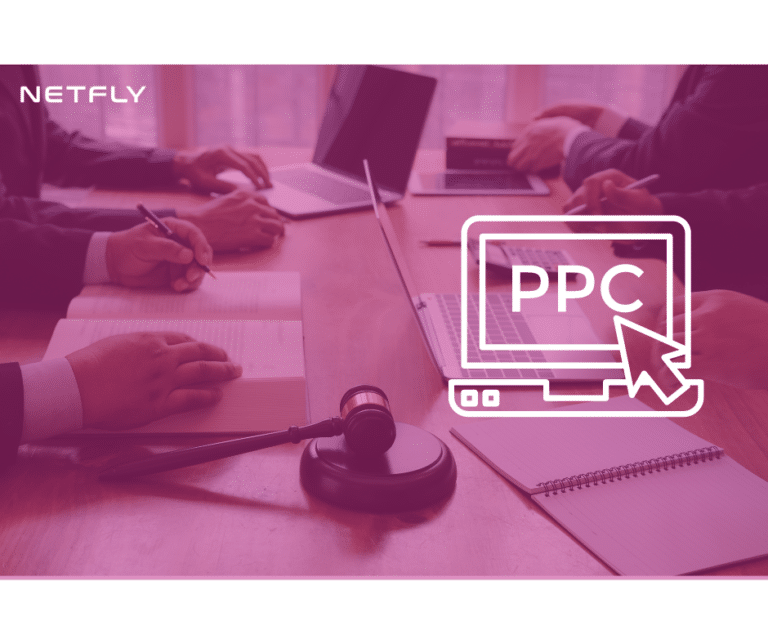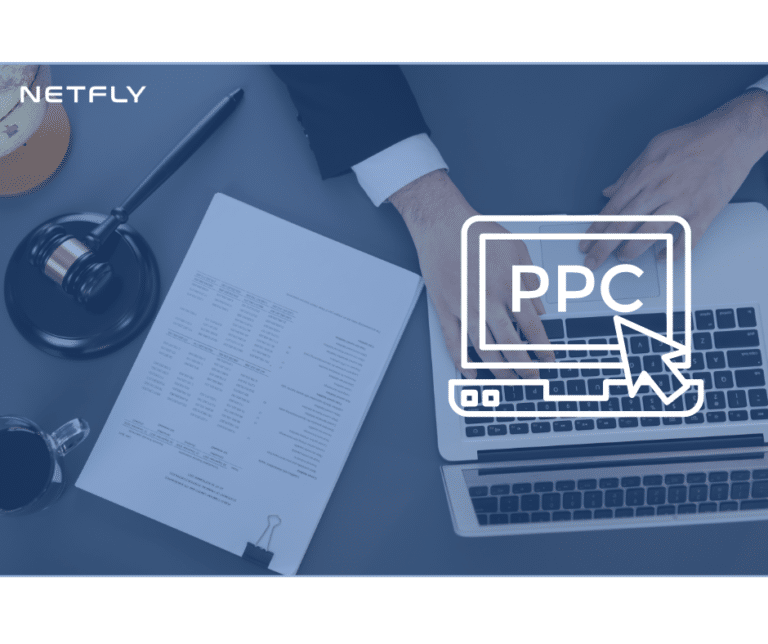As a lawyer looking to stand out on social media, start by optimizing your profiles with a professional bio and photos to reflect your legal expertise. Engage authentically by promptly responding to comments and sharing valuable insights from your practice. Employ visually appealing content and an effective hashtag strategy to widen your reach. Consider collaborating with industry influencers to amplify your visibility and credibility. Additionally, participate in legal discussion groups to enhance your knowledge and network. Strategically adapting your online approach will ensure you’re not only seen but remembered. With these tips, you’ll set the stage for a remarkable digital presence, enticing further exploration into how you can continue to innovate your social media tactics.
Key Takeaways
- Optimize your LinkedIn profile with a professional photo, clear bio, and multimedia showcasing legal expertise.
- Engage regularly and authentically, responding promptly to comments and messages.
- Share valuable legal insights through case studies and discussions on current trends.
- Utilize visual content like infographics and videos to enhance engagement and brand consistency.
- Collaborate with industry influencers to amplify visibility and leverage their networks for broader reach.
Optimize Your Profiles
To effectively engage with potential clients on social media, optimizing your profiles is vital. As a lawyer, your social media presence must not only convey professionalism but also reflect your personal branding and expertise. Start with profile optimization on platforms like LinkedIn, which is essential for legal professionals. Make sure your profile picture is professional and your bio succinctly encapsulates your specialties and achievements.
Developing a branding strategy that aligns with your legal practice enhances your visibility and credibility. On LinkedIn, customize your headline to go beyond just your job title. Incorporate key accomplishments or niche areas of law to immediately inform potential clients or connections about your expertise. Use the summary section to tell your story, focusing on how your legal services solve problems, thereby positioning yourself as an indispensable asset.
Personal branding on social media isn’t just about being seen—it’s about being remembered. Tailor your content to reflect the unique aspects of your practice and values. This targeted messaging helps in building a trustworthy persona that resonates with your audience. Remember, every element of your profiles should be a cohesive part of your overall branding strategy.
Engage Regularly and Authentically
Engaging regularly and authentically on social media is essential for maintaining the connection with your audience. As a lawyer, your presence online should reflect your professionalism while also demonstrating your approachability. You can’t just post sporadically and expect to build a loyal following. Consistent engagement shows that you’re active and responsive, key traits clients look for in a trustworthy legal advisor.
Here are four effective engagement strategies to contemplate:
- Respond Promptly: Always aim to reply to comments and messages within a reasonable time frame. This shows that you value the interaction and are attentive to potential clients’ needs.
- Participate in Discussions: Join conversations relevant to your field. This not only increases your visibility but also helps establish your expertise without directly selling your services.
- Host Q&A Sessions: Regularly schedule live sessions to answer general legal questions. This interaction fosters trust and humanizes your online persona.
- Share Behind-the-Scenes Content: Occasionally post about your daily professional life or firm culture. Authentic interactions like these help demystify the legal process and make you more relatable.
Share Valuable Legal Insights
As you navigate the complexities of social media, it’s important to share valuable legal insights that resonate with your audience. By highlighting recent case studies, you’ll not only showcase your expertise but also provide practical examples of how legal principles apply in real-world scenarios. Discussing current legal trends can further establish you as a forward-thinking professional who is well-versed in the dynamic landscape of law.
Highlight Recent Case Studies
Highlighting recent case studies on your social media platforms not only showcases your expertise but also keeps your followers informed about pivotal legal developments. When you share a case study analysis, you’re not just recounting a story; you’re illustrating your direct involvement in achieving significant legal outcomes. These posts provide tangible proof of your skills and the concrete results you deliver, making you stand out in a competitive field.
Here’s how you can effectively use case studies in your social media strategy:
- Choose Impactful Cases: Select case studies that demonstrate unique challenges or notable victories. Client success stories where your actions led to favorable outcomes can have a profound social media influence.
- Detail Your Strategy: Explain the legal tactics used and how they contributed to the case outcome. This not only educates your audience but also showcases your strategic thinking.
- Discuss Collaborative Success: If other parties played a part, mention how teamwork benefited the case. This shows your ability to collaborate and utilize resources effectively.
- Update Regularly: Keep your content fresh by consistently updating your case studies to include recent legal conflicts and triumphs. This keeps your audience engaged and shows that you’re active and successful in present legal environments.
Discuss Legal Trends
While showcasing case studies proves effective in demonstrating your legal acumen, sharing insights on current legal trends can further establish your authority and keep your followers well-informed. As a legal professional, you’re in a prime position to discuss developments in legal tech and regulatory changes, giving your audience invaluable perspectives.
Legal tech is rapidly transforming how law is practiced. From AI-driven legal research tools to blockchain applications in contract management, staying ahead in this area not only enhances your practice but also enriches your content. Highlight how these innovations can streamline processes, reduce costs, and increase accuracy in legal proceedings. Your insights could demystify these technologies for potential clients who might be unaware of their benefits.
Moreover, regulatory changes continually reshape the legal landscape. Whether it’s updates in privacy laws, changes in corporate governance standards, or adjustments due to economic shifts, you have the expertise to decode these changes. Explain their implications in a clear, relatable manner. This not only educates your followers but also showcases your expertise in maneuvering through complex legal environments.
Leverage Visual Content
Incorporating visual content into your social media strategy can greatly enhance engagement and retention among your followers. As a lawyer, you’re not just sharing information; you’re telling a story. Visual storytelling not only captures attention but also makes complex legal concepts more accessible and relatable. Maintaining brand consistency across your visuals strengthens your professional image and aids in building trust with your audience.
Here are four pivotal strategies to effectively leverage visual content:
- Develop a Signature Style: Create a consistent visual theme that reflects your brand’s colors, fonts, and logos. This consistency reinforces your brand identity.
- Infographic Creation: Transform dense legal data and statistics into infographics. These are not only appealing but make it easier for your followers to understand and remember the information.
- Engage Through Video Marketing: Produce short, informative videos that discuss legal processes, offer quick tips, or explain recent changes in law. Video content has a higher engagement rate and can notably increase your reach.
- Before and After Series: Showcase your successes through ‘before and after’ visuals or case study summaries. This not only demonstrates your expertise but also builds credibility and client trust.
Utilize LinkedIn Effectively
As you master visual storytelling on various platforms, remember that LinkedIn offers a unique space tailored for professionals like you. This platform is not just another social network; it’s a critical tool for LinkedIn networking and establishing your professional brand. To make the most of it, you’ll need to focus on profile optimization.
Start by refining your headline and summary. These are the first things people see; make sure they encapsulate who you are and the value you bring as a lawyer. Use keywords relevant to your legal expertise to improve your visibility in search results. Adding multimedia elements like videos or articles you’ve written can also showcase your legal acumen and experiences.
Next, cultivate your network strategically. Connect with fellow legal professionals, join relevant groups, and participate in discussions. This isn’t just about broadening your network but engaging with it meaningfully. Share insights, comment on posts, and publish articles that reflect your legal expertise. This proactive approach not only enhances your profile’s strength but also keeps you visible and relevant within your industry.
Monitor Your Online Reputation
As a lawyer, monitoring your online reputation is essential; it’s important you address negative mentions promptly to maintain your professional image. You should also consider utilizing reputation management tools to streamline this process and make sure no important feedback goes unnoticed. Encouraging positive client stories can greatly enhance your online presence, attracting more clients and building trust in your expertise.
Address Negative Mentions Promptly
Regularly monitoring your online reputation is essential, particularly when negative mentions arise. As a lawyer, your professional image can have a significant impact on your practice, and addressing any negative feedback promptly and tactfully is vital for your crisis management strategy.
Here’s how you can effectively handle negative mentions:
- Respond Quickly: Time is of the essence. Responding promptly to negative mentions can prevent them from escalating and shows that you’re attentive and care about client feedback.
- Maintain Professionalism: Always keep your responses professional. Avoid emotional reactions and focus on providing a constructive and respectful reply.
- Offer Solutions: Whenever possible, offer a solution to the problem addressed in the negative mention. This not only helps in resolving the client’s issue but also demonstrates your commitment to client satisfaction.
- Learn and Adapt: Use negative feedback as a learning tool. Analyze online reviews and mentions to identify areas for improvement in your services or client communication strategies.
Utilize Reputation Management Tools
Nearly every successful lawyer knows that maintaining a positive online reputation is crucial. In the digital age, your online presence can notably impact your practice. It’s essential to stay vigilant about what’s said about you online. Utilizing reputation management tools is an effective strategy to monitor and manage your online reputation effectively.
These tools help you keep track of online reviews and mentions across various platforms. By setting up alerts, you’ll be notified whenever your name or your firm is mentioned online. This real-time monitoring allows you to address any negative mentions promptly and reinforce positive feedback.
Furthermore, brand monitoring is an integral part of reputation management. It involves more than just scanning for reviews; it’s about understanding how your legal brand is perceived online. Analyzing trends, feedback, and the general sentiment can guide your content strategy and help you position yourself as a trusted authority in your field.
Encourage Positive Client Stories
Encouraging your clients to share their positive experiences online can significantly enhance your digital footprint. When handled strategically, client testimonials and success stories become compelling evidence of your expertise and client satisfaction. Here’s how you can leverage these powerful tools:
- Request Testimonials: After a successful case resolution, ask clients if they’d be willing to share their story. Explain how their positive feedback could assist others in similar situations.
- Highlight Success Stories: Use your social media platforms to showcase case success stories. Guarantee you maintain client confidentiality and legal compliance when sharing any details.
- Engage with Feedback: Don’t just post testimonials; interact with them. Thank clients for their feedback and respond to comments. This interaction shows that you value your clients and their opinions.
- Incorporate Storytelling: Transform dry legal outcomes into engaging narratives. Effective storytelling involves connecting emotionally with your audience, making the client’s journey relatable and inspiring.
Join Legal Discussion Groups
By joining legal discussion groups, you’ll tap into a vibrant community where knowledge sharing and professional growth go hand in hand. In these forums, you can explore deeply into topics like legal ethics and courtroom tactics, which are essential to refining your practice. It’s about more than just receiving information; it’s about engaging in high-level debates that challenge your understanding and compel you to look at issues from multiple angles.
Participating actively in these groups allows you to contribute your insights and learn from seasoned practitioners. Discussions on legal ethics, for instance, prepare you to navigate complex situations with integrity and adherence to professional standards. Meanwhile, investigating effective courtroom tactics with peers can provide you with new strategies that enhance your litigation skills.
Moreover, these groups often feature updates on the latest legal trends and judicial decisions, ensuring you stay ahead of the curve. Engaging with this content not only keeps you informed but also sparks ideas for your own cases and client advisories.
Implement a Hashtag Strategy
As you explore social media strategies, identifying relevant hashtags that align with your areas of legal expertise is crucial. Once you’ve selected these hashtags, you’ll need to consistently monitor their performance to understand their impact on your audience engagement. This approach is vital for ensuring your content reaches the right viewers and enhances your professional visibility online.
Identify Relevant Hashtags
Harnessing the power of hashtags can greatly amplify your online visibility as a lawyer. As you explore the digital landscape, understanding how to identify relevant hashtags is essential. This isn’t just about using popular tags; it’s about finding those that resonate specifically with your target audience and area of expertise.
To effectively implement a hashtag strategy, consider these steps:
- Conduct Hashtag Research: Start by exploring hashtags that are trending within the legal community. Tools like Twitter Trends and Google Trends can provide insights into what’s currently capturing attention.
- Analyze Competitor Hashtags: Pay attention to what your competitors are using. This can give you clues about what works and help you carve out a niche for yourself in the hashtag world.
- Use Hashtag Analytics: Utilize tools that offer analytics to understand the reach and engagement of specific hashtags. This will guide you in choosing the most effective ones for your posts.
- Mix Popular and Niche Hashtags: Combine widely used hashtags with more specific ones. This strategy helps you reach both a broad audience and more targeted groups.
Monitor Hashtag Performance
Once you’ve identified and employed relevant hashtags, it’s essential to monitor their performance to refine your strategy. Engaging in hashtag analytics is a key step. You’ll want to look at which tags are gaining traction and which aren’t. This involves tracking the trends and understanding the dynamics of hashtag engagement across different platforms.
To begin, use tools designed for social media analytics. These tools provide insights into how often your hashtags are used, who is using them, and the type of engagement they are receiving. This data is pivotal as it helps you understand the reach of your hashtags and their ability to foster community building.
Collaborate With Industry Influencers
Collaborating with industry influencers can greatly amplify your firm’s visibility and credibility. By engaging with well-respected figures who already command a significant following, you can leverage their platforms to enhance your reach and establish your firm as a thought leader. This strategy isn’t just about broadcasting your brand; it’s about integrating your expertise with influential voices to create compelling, authoritative content.
Consider these strategic approaches to maximize your influencer collaborations:
- Identify the Right Influencers: Look for influencers who align with your firm’s values and have a strong presence in your specific legal field. Their followers should be your potential clients.
- Engage in Thought Leadership: Collaborate on content that showcases your expertise and theirs. This could include joint articles, webinars, or panel discussions at industry events.
- Host Online Events Together: Work with influencers to organize online seminars or Q&A sessions. This not only boosts engagement but also directly connects you with an interested audience.
- Cross-Promote Content: Share each other’s content. This mutual promotion expands your reach and enhances credibility through association.
Analyze and Adapt Strategies
Every strategy, no matter how effective initially, can benefit from regular analysis and timely adjustments. As a lawyer looking to stand out on social media, it’s essential that you’re not just implementing strategies, but also taking the time to analyze data and adapt your messaging based on the findings. This cyclic process guarantees that your outreach remains fresh and relevant.
Start by gathering data on engagement metrics such as likes, shares, comments, and the growth of your followers. Use this information to discern which types of posts generate the most interaction and which ones fall flat. Are educational posts about legal updates more engaging, or do your audience prefer case study discussions? Analyzing this data isn’t just about numbers; it’s about understanding the behavior and preferences of your audience.
Once you’ve analyzed the data, adjust your messaging. If you notice a trend that content with a personal touch performs better, tailor your future posts to include more personal stories or client successes. Remember, the legal field evolves, and so should your social media strategies. By staying adaptive and responsive to data, you’ll not only maintain relevance but also enhance your digital presence, attracting more potential clients.
Frequently Asked Questions
How Can Lawyers Handle Negative Comments on Social Media Professionally?
When dealing with trolls or responding to criticism, it’s key to stay professional. Address concerns factually and courteously. Ignoring isn’t always wise; instead, demonstrate your commitment to client satisfaction and professional integrity.
Are There Ethical Concerns With Lawyers Advertising on Social Media?
As a lawyer, you’re treading a minefield when advertising on social media. Legal restrictions and professional boundaries mustn’t be crossed. Ethically, it’s a balancing act—ensure your online presence respects these essential limits.
What Privacy Settings Should Lawyers Use on Their Social Profiles?
You should set your profile visibility to private and meticulously manage your privacy controls to protect client confidentiality and maintain professionalism. Regularly update your settings to align with evolving privacy norms and regulations.
How Often Should Lawyers Update Their Social Media Certifications?
As seasons shift, so should your certification frequency. Updating your social media certifications regularly showcases ongoing professional development and enhances reputation management. Aim for biannual refreshes to keep your profile sharp and engaging.
What Are the Risks of Providing Legal Advice on Social Media?
Providing legal advice on social media risks breaching client confidentiality and increases liability concerns. You must carefully manage what you share to avoid unintended implications and potential legal repercussions. Always prioritize professional discretion.
Conclusion
Ready to improve your social media presence? By optimizing your profiles, engaging authentically, and leveraging smart, visual content, you’re setting the stage for success. But don’t stop there. Engage in legal discussion groups, collaborate with influencers, and refine your strategies based on real analytics. What outcomes might await as you implement these game-changing tips? Imagine the possibilities: enhanced visibility, authoritative influence, and perhaps most thrilling—unprecedented career opportunities. Are you prepared to stand out?










